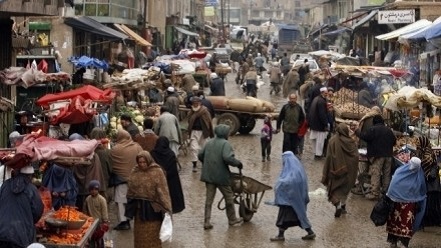Afghanistan’s Intersecting Challenges
Date and time: Friday, May 15, 11 am to 12:30 pm Australian Eastern Standard Time (UTC+10)
Registration: The Majlis, hosted by the Centre for Arab and Islamic Studies, ANU, will be held online via Zoom. Please email if you wish to register and we will send the Zoom link.
Afghanistan currently faces the problem of multiple intersecting challenges. Three, in particular, are dominating the current political environment. The first relates to the ongoing intra-elite struggle between the two leading candidates from the September 2019 presidential election, a struggle which is as much about the character of political institutions as it is about personal rivalry. The second is a result of the unraveling of the much-touted “peace process,” an unraveling that has resulted from serious defects in both the negotiating process that led to the February 29, 2020 agreement between the United States and the Taliban, and the substance of that agreement itself. The third, and perhaps the most critical, is a product of the arrival of COVID-19 in Afghanistan, a country with a public health system totally unequal to the challenge that a pandemic poses, and with a population heavily dependent on daily earnings in order to pay for daily bread. These challenges feed off each other, and it is not clear that there is any easy solution to them.
Speaker’s biography:
Professor William Maley is Professor of Diplomacy at the Asia-Pacific College of Diplomacy, where he served as Foundation Director from 1 July 2003 to 31 December 2014. Among his numerous publications, he has a recent book entitled, Transition in Afghanistan: Hope, Despair and the Limits of Statebuilding (London: Routledge, 2018).
He taught for many years in the School of Politics, University College, University of New South Wales, Australian Defence Force Academy, and has served as a Visiting Professor at the Russian Diplomatic Academy, a Visiting Fellow at the Centre for the Study of Public Policy at the University of Strathclyde, and a Visiting Research Fellow in the Refugee Studies Programme at Oxford University.
He is a barrister of the High Court of Australia, vice president of the Refugee Council of Australia, and a member of the Australian Committee of the Council for Security Cooperation in the Asia Pacific (CSCAP). He is also a member of the Editorial Board of the journal Global Responsibility to Protect, and of the International Advisory Board of the Liechtenstein Institute on Self-Determination at Princeton University. CSCAP).


